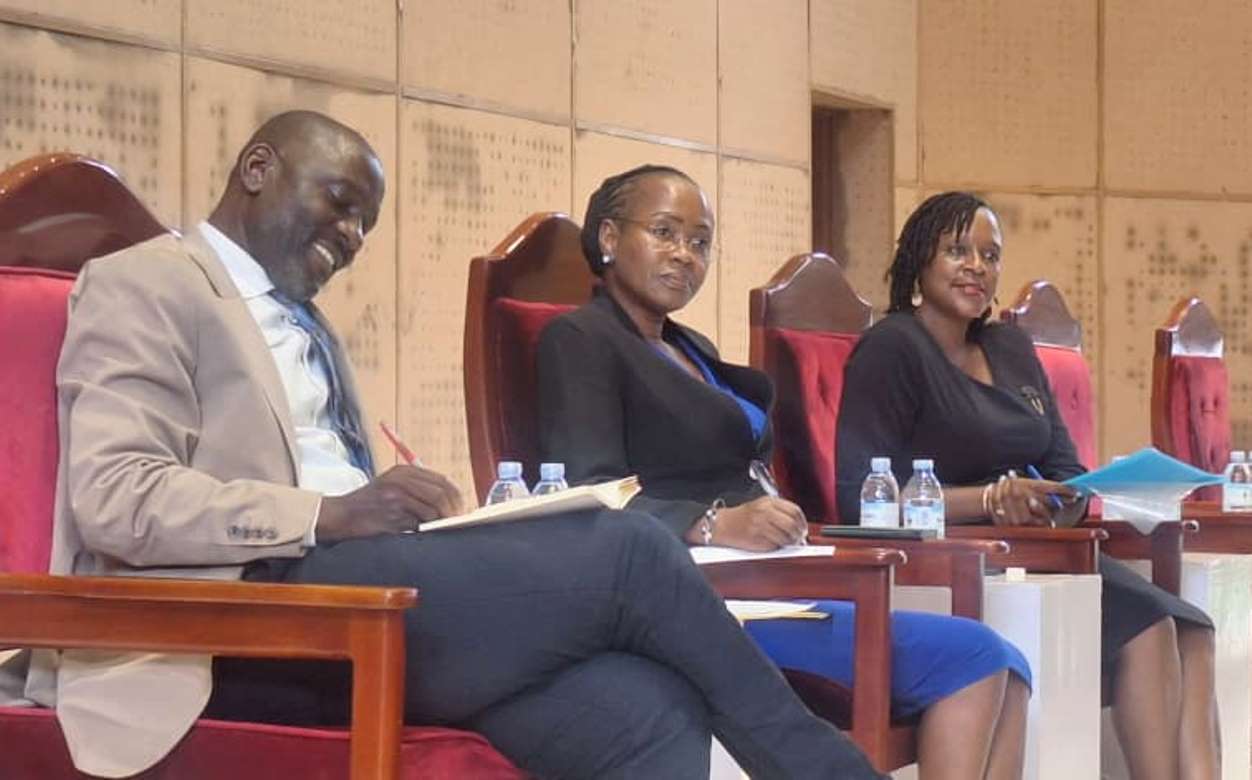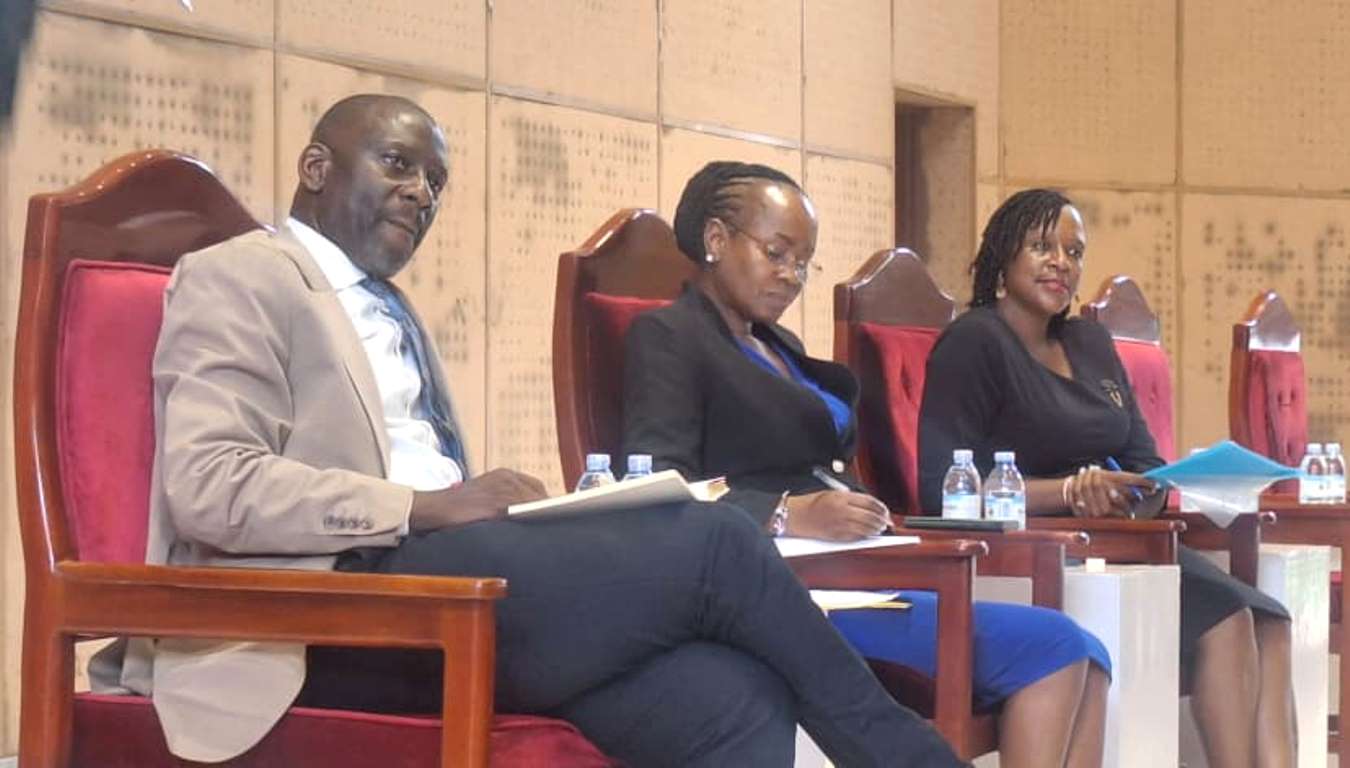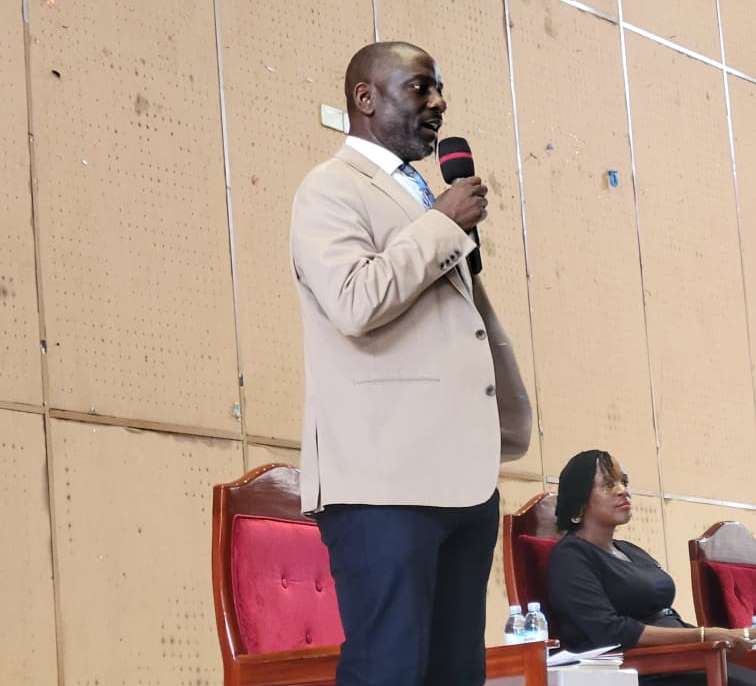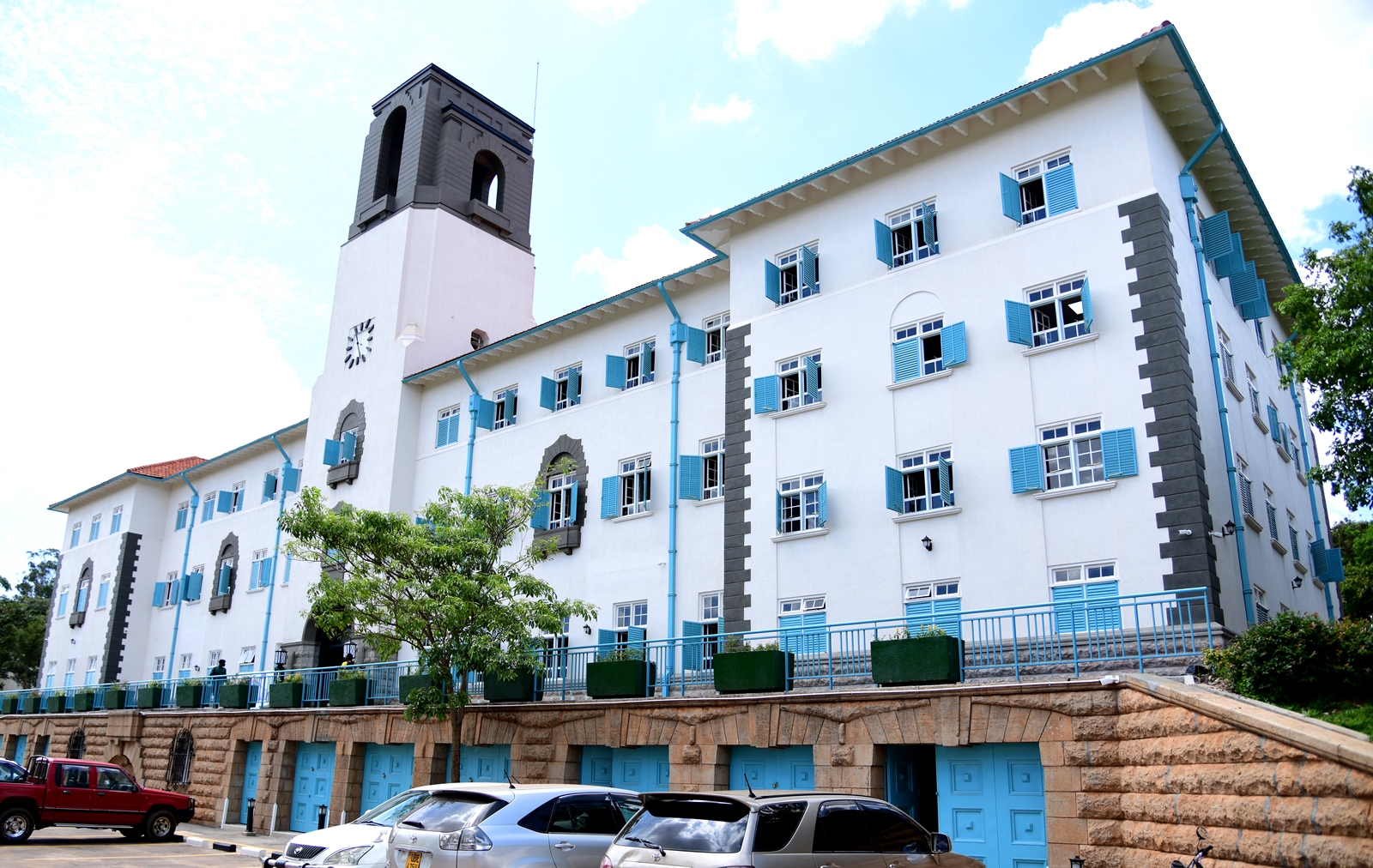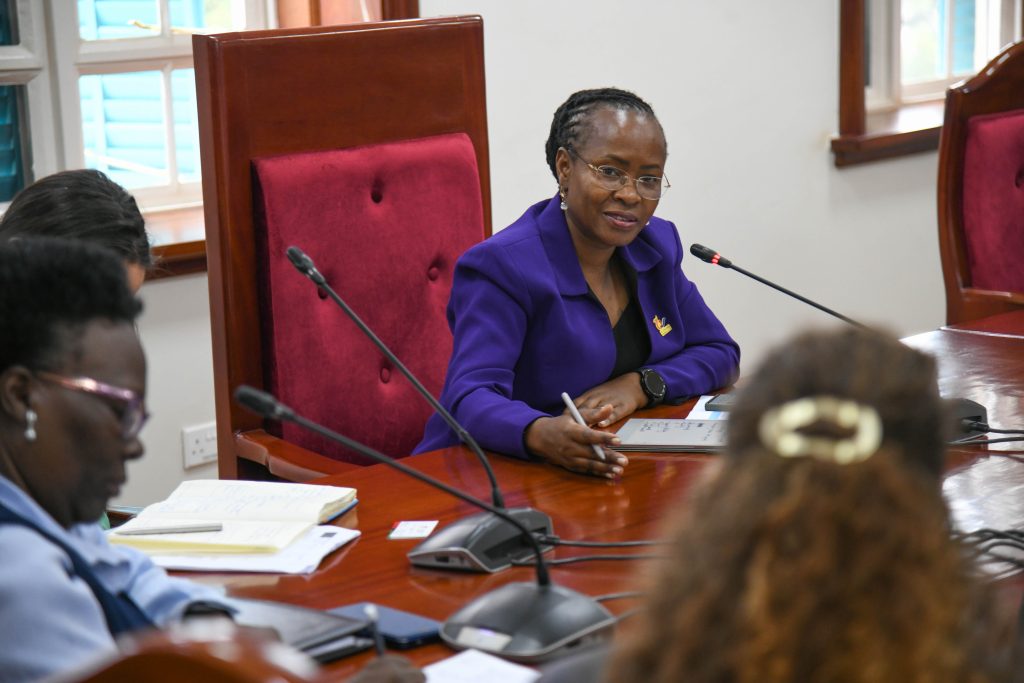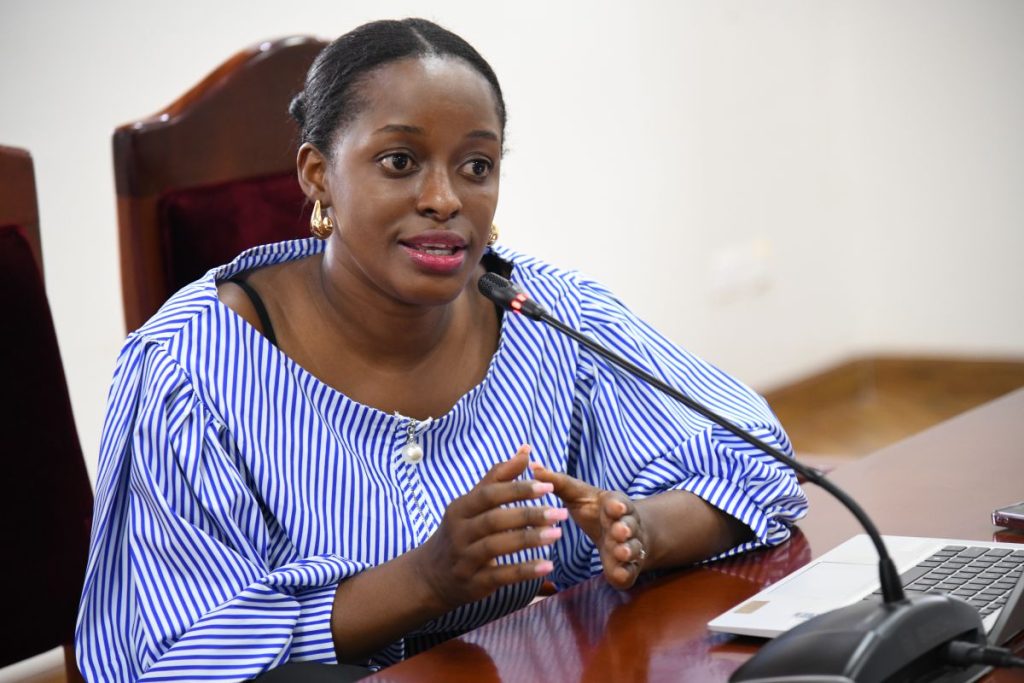The College of Agricultural and Environmental Sciences (CAES), Makerere University in partnership with the African Agricultural Technology Foundation (AATF) and the Soybean Innovation Lab through the Partnerships for Seed Technology Transfer in Africa (PASTTA) project on 3rd and 5th January 2019 conducted soybean field days at Mubuku Irrigation Scheme in Kasese and Ngetta ZARDI in Lira respectively. A total of 35 soybean varieties from across Africa were being evaluated; dubbed Pan African Soybean trial. The evaluation trials were aimed at identification and release of new improved varieties.
PASTTA is a global development Alliance between USAID Feed the Future, Sygenta Foundation for Sustainable Agriculture, AATF and New Markets Lab.
The objectives of the field days were to expose stakeholders in soybean value chain to the performance of the 35 soybean varieties under evaluation, carry out participatory evaluation of the new soybean varieties in the research pipe line and to facilitate networking between the different stakeholders in the soybean value chain.
The 35 varieties were a collection from six African countries of Malawi, Zambia, Zimbabwe, Ethiopia, South Africa and Uganda. The trials included all the six Maksoy varieties; Maksoy 1N, 2N, 3N, 4N, 5N and 6N. The function attracted soybean farmers, processors, seed companies, local seed businesses, non-governmental organizations, researchers from government and private institutions and Local government district officials.

Makerere University Plant breeder and soybean researcher, Prof. Phinehas Tukamuhabwa thanked the Kasese Local government officials, farmers and the management of Mubuku Irrigation scheme for the hospitality and partnership with the University since 2002.
Prof. Tukamuhabwa expressed gratitude to the Government of Uganda and development partners for financing the research.
“As researchers we have little money and we depend on donors. We have received money from Vegetable Oil Development Project and government agencies like Makerere University and NARO and that is why we are here for this field day. I am also grateful for the seed companies and the private sector represented here. As researchers we cannot do much without your support and we want to keep up”, Prof. Tukamuhabwa stated.
The Professor said the day’s activities were to talk about soybean and how to serve the country better and to help farmers.
“The reason is to look at different varieties using participatory method and we are doing it for the farmers, processors and seed companies.
In addition to testing varieties from Uganda, we are working with AATF to see if there are better varieties from Malawi, Zambia, Zimbabwe, Ethiopia and South Africa that we can take advantage of”, Tukamuhabwa reported.

Prof. Tukamuhabwa noted that despite the fact that Kasese district is one of the greatest farming districts nearing large-scale production in maize, they have not yet learnt good agricultural practices like crop rotation.
“It is common knowledge that it is not a good practice to plant maize after maize because eventually you are making soils poor.
If you want to make money in agriculture by farming cereals like maize and rice, use crop rotation. It discourages development of pests and diseases and improves soil properties.
When you harvest soybean or beans plant maize. When you harvest maize, grow soybean or beans and after soybean grow rice”, the don advised.
The Project Officer PASTTA Project Mr. Arnold Mbowa said over the years, AATF has contributed to the generation and adoption of new varieties for Uganda and the regional markets for different crops. These varieties have over time been utilized by farmers and other stakeholders for the betterment of the livelihoods.
Mr. Mbowa said several milestones have been reached within Uganda in partnership with different research organizations like Makerere University and the National Agricultural Research Organization (NARO).
“Farmers are very important in any breeding program. We have been raising materials here for the past three months and we would like to get your input on these materials. In addition to farmers, we have processors, seed companies and researchers so that we come up with a common stand. We hope to get a lot of feedback and learn a lot from you farmers,” Mbowa said.

The Associate Plant breeder from Makerere University Mr. Tonny Obua explained that the Pan African soybean trial with a total of 35 different varieties collected across Africa were being tried in three locations in Mubuku-Kasese, Nakabango – Jinja and Ngetta in Lira. Mr. Obua explained that these three locations were picked for critical reasons. “At Mubuku, we have flood irrigation. So, we want to see the performance of these varieties under flood irrigation because we are now moving with the challenges of climate change. We are beginning to see that irrigation is one way of tackling climate change and farmers will need to adopt this technology.
We picked Ngetta because Lira it is the hub of soybean production in Northern Uganda. So most of the farmers and processors are found in Lira.
And, in most of our evaluation trials, we have seen that Nakabango has been giving us very good yields. So, we also want to plant these varieties in the best location to ascertain which variety performs under optimum condition that is why we picked those three environments for the Pan African trial.” Obua said.
The idea according to Mr. Obua, was to see the adaptability, how these varieties perform in terms of pests and diseases, maturity periods, yields and resistance to droughts.
“So far most of these varieties have reached harvesting stage and we want to go beyond harvesting to see more traits of our interest. We have already collected data on resistance to pests and diseases, pod shuttering and nodulation and the next task is to add in the yield data and eventually determine the best variety out of the 35.” Obua explained.

Primarily he said, most of the varieties from Southern Africa are relatively short and early maturing and the varieties from Uganda are relatively tall, slightly late in terms of maturity but preliminarily showing very good performance in terms of yield but more evaluation is to be done to ascertain the performance of the yields.
Obua further explained that the purpose of the field days was to bridge the gap between farmers and processors so that farmers understand the expectations from processors and the traits processors are interested in.
The farmers through the field day would also understand the different varieties of soybean available, look at them and feel them physically, know their attributes and differentiate them, help them learn the agronomy of how to plant soybean and bridge the gap between researchers, farmers, markets and extension services.
The Production Officer of Kasese District Mr. Julius Baluku thanked Makerere University and her partners for choosing Kasese as a trial site describing this as a rare opportunity that will benefit farmers.
He said the district has had a number of trials but most of the projects never share the progress.

“As a district, the benefit from this trial is twofold; As service delivery people, our target is to increase production and productivity to address food security and improve farmer’s income and we can’t do without you.
The district has a big potential for soybean production but it has not been fully utilized because we don’t know about varieties and good agricultural practices.
The other benefit is the researcher-extension-farmer linkage and we thank the researchers for the trials and advice given on agricultural practices and I am confident that by the end of the day we shall have learnt a lot”, Mr. Baluku said.
Also present during the field day was RECO; a soybean processor based in Kasese and Kampala. RECO assured farmers of the ready market for quality soybean grain; with a demand of 120,000 tons in 2019 for food processing sector. The biggest challenge raised however, was the poor quality of the soybean, moulded and affected by aflatoxins and salmonella including extraneous materials like poultry droppings, stones, other beans due to poor handling and storage.
Farmers were advised to properly dry the soybeans, ensure that the soybean is free from aflatoxins and other residues as they will be subjected to testing before buying.
Report compiled by;
Jane Anyango,
Principal Communication Officer, CAES
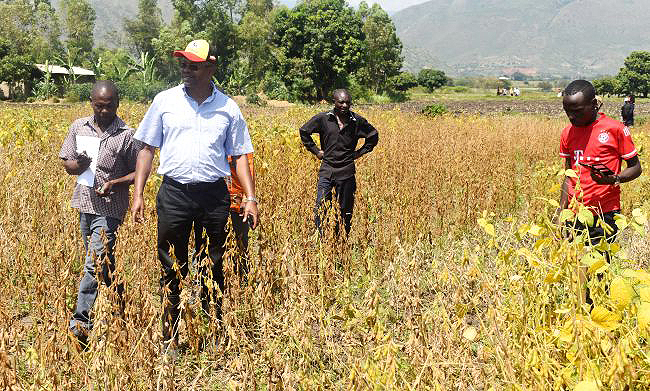

 Research6 days ago
Research6 days ago
 General1 week ago
General1 week ago
 Humanities & Social Sciences2 weeks ago
Humanities & Social Sciences2 weeks ago
 Health1 week ago
Health1 week ago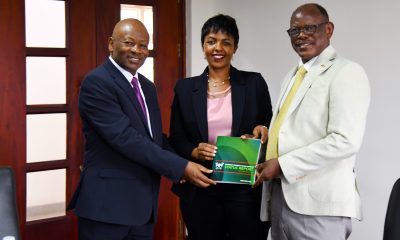
 Health2 weeks ago
Health2 weeks ago





